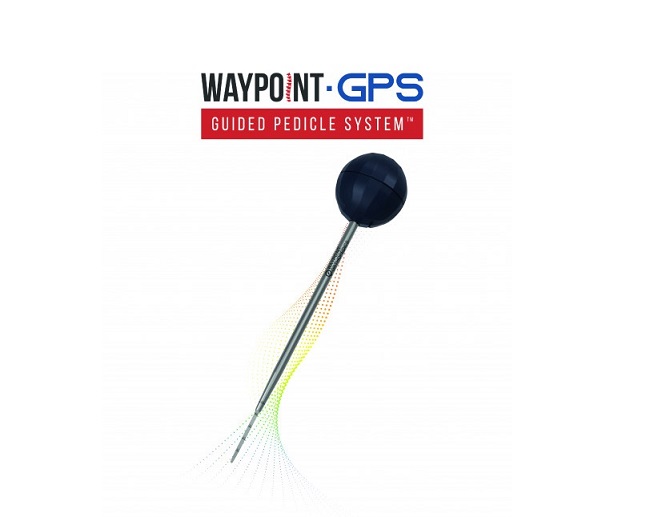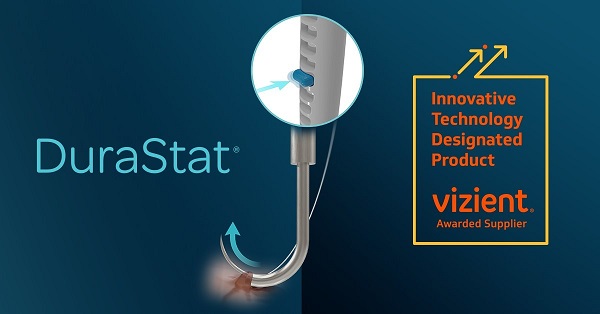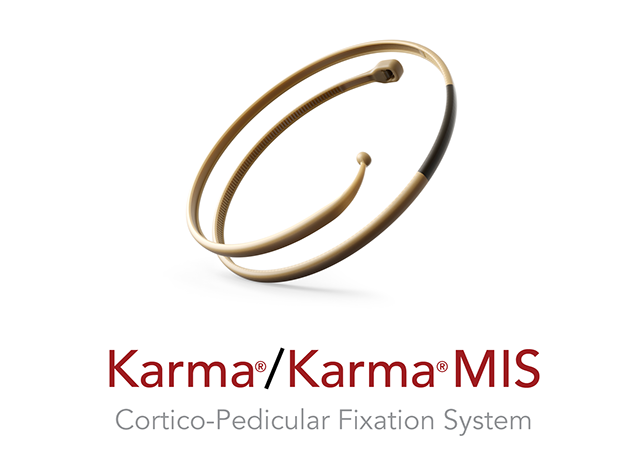Powered by a database of over 10,000 surgical cases, Medtronic continues to evolve the UNiD™ platform to help surgeons plan procedures, personalize care for their patients and predict post-operative spinal compensation
DUBLIN, July 14, 2022 /PRNewswire/ — Medtronic plc (NYSE:MDT), a global leader in healthcare technology, today announced it has received U.S. Food and Drug Administration (FDA) 510(k) clearance for its UNiD™ Spine Analyzer v4.0 planning platform, which includes a new Degen Algorithm for degenerative spine procedures. The algorithm leverages machine learning to help surgeons plan and personalize procedures for patients undergoing lower lumbar spine surgery and predicts spinal compensation mechanisms six months after the operation.
This new update also includes enhancements to the pediatric and adult deformity algorithms predicting compensatory changes to the spine. Medtronic is the first and only company to have FDA cleared predictive models for spine surgery.
The release comes with a new UNiD™ Hub patient-centric platform that enables surgeons to track patients throughout the perioperative care pathway and assess surgical results through long-term radiographic and patient-reported outcomes data collection.
“Patient by patient, our UNiD™ Lab engineers have learned from more than 10,000 spine surgery cases to deliver greater insights to surgeons that lead to better patient alignment,” said Dan Wolf, vice president and general manager, intelligent Data Solutions within the Cranial & Spinal Technology business, which is part of the Neuroscience Portfolio at Medtronic. “It is truly exciting to share that we have expanded our UNiD™ ASI technology to include hardware and software solutions dedicated to helping spine surgeons treat degenerative spinal pathologies, where the majority of spine surgery is performed.”
Degenerative spine disease is a common health condition and significant cause of disability for many patients worldwide1. The UNiD™ ASI Degen Algorithm helps surgeons achieve spinal alignment by more accurately planning procedures and predicting spinal alignment after six months.
Surgical planning, using the UNiD Spine Analyzer, is especially important for degenerative spine procedures, as studies suggest nearly a third of these degenerative patients have a hidden deformity2. A study suggests that when sagittal alignment is not achieved during these procedures, patients are at 10 times greater risk of experiencing degeneration of discs above or below the level where the operation was performed3 Moreover a study shows that 62% of patients remained sagittally malaligned after their procedure,4 which may lead to revision surgery3,5.
“Alignment matters for all spinal surgery – both short construct degen and long construct deformity cases,” said Dr. Christopher Kleck, an orthopedic spine surgeon at the University of Colorado. “Planning all of these cases with my UNiD Lab engineer ensures that my surgical plan is backed by artificial intelligence and clinically important predictive models to set my patients up for long-term success.”
This new technology further demonstrates Medtronic’s commitment to offering solutions for all spinal pathologies, including deformity and degenerative conditions. Over time, UNiD ASI technology will continue to evolve as more case data is added and predictive algorithms are further refined to help make spine surgery more predictable for surgeons and patients alike.
About UNiD ASI Platform
The UNiD ASI platform uses a database of more than 10,000 surgical cases to power algorithms that visualize multiple permutations, allowing surgeons to better understand their patient’s alignment before surgery, customize a surgical plan and use patient-specific rods to help ensure the goals of the surgery are achieved. AI helps visualize mechanisms above and below the spine that will most likely occur based on the surgical plan in order to enhance clinical and surgical workflow and increase reproducibility.
About Medtronic
Bold thinking. Bolder actions. We are Medtronic. Medtronic plc, headquartered in Dublin, Ireland, is the leading global healthcare technology company that boldly attacks the most challenging health problems facing humanity by searching out and finding solutions. Our Mission — to alleviate pain, restore health, and extend life — unites a global team of 95,000+ passionate people across 150 countries. Our technologies and therapies treat 70 health conditions and include cardiac devices, surgical robotics, insulin pumps, surgical tools, patient monitoring systems, and more. Powered by our diverse knowledge, insatiable curiosity, and desire to help all those who need it, we deliver innovative technologies that transform the lives of two people every second, every hour, every day. Expect more from us as we empower insight-driven care, experiences that put people first, and better outcomes for our world. In everything we do, we are engineering the extraordinary. For more information on Medtronic (NYSE:MDT), visit www.Medtronic.com and follow @Medtronic on Twitter and LinkedIn.
Any forward-looking statements are subject to risks and uncertainties such as those described in Medtronic’s periodic reports on file with the Securities and Exchange Commission. Actual results may differ materially from anticipated results.
References:
- Ravindra, Vijay M, et al. Degenerative Lumbar Spine Disease: Estimating Global Incidence and Worldwide Volume. Global Spine. 2018
- Leveque, Jean-Christophe A., et al. “A multicenter radiographic evaluation of the rates of preoperative and postoperative malalignment in degenerative spinal fusions.” Spine 43.13 (2018): E782-E789.
- Rothenfluh DA, Mueller DA, et al. Pelvic incidence lumbar lordosis mismatch predisposes to adjacent segment disease after lumbar spinal fusion. Eur Spine J (2015) 24:1251-1258.
- Moal B, Schwab F, Ames CP, et al. Radiographic Outcomes of Adult Spinal Deformity Correction: A Critical Analysis of Variability and Failures Across Deformity Patterns. Spine Deform. 2014.
- Jang J-S, Lee S-H, Min J-H, Kim SK, Han K-M, Maen DH. Surgical treatment of failed back surgery syndrome due to sagittal imbalance. Spine (Phila. Pa. 1976). 2007.
| Contacts: | |
| Kyra Nead | Ryan Weispfenning |
| Public Relations | Investor Relations |
| +1-303-886-2549 | +1-763-505-4626 |
SOURCE Medtronic plc









